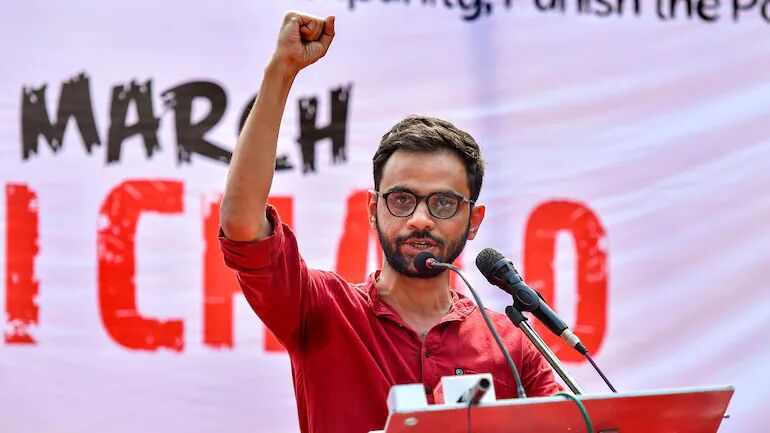Umar Khalid not relying on law but on conjecture: Cops

New Delhi: The Delhi Police on Tuesday began arguments against former JNU student leader Umar Khalid's bail plea in the north-east Delhi riots' UAPA case, in what is quickly turning out to be one of the longest bail hearings in the riots cases. Special Public Prosecutor Amit Prasad came out swinging, arguing that Khalid had based his arguments on conjectures and surmises and had referred to several web series and television shows —allegedly to grab headlines.
While Khalid's advocate, Trideep Pais, did refer to several shows that highlighted the role of the State in hoisting up false charges — he had carefully gone ahead to dismantle the prosecution's case as alleged in the chargesheet — one witness testimony at a time. In the months of arguments, Khalid's lawyers had broken down the details of statements recorded by the police and gone on to point out discrepancies in each of them.
Khalid and several others have been booked under the Unlawful Activities (Prevention) Act (UAPA), a stringent anti-terror law, and are accused of being the "masterminds" of the riots which had left 53 people dead and over 700 injured in 2020. The arguments on their bail pleas have been going on for more than five months.
Opposing his bail plea before Additional Sessions Judge Amitabh Rawat, SPP Amit Prasad contested Umar's arguments that the investigating agency was communal and the charge sheet in the riots conspiracy case was a figment of their imagination.
Representing the police, the SPP alleged: "The ultimate objective was to overthrow the government and undermine the authority of the parliament, which enacted the Citizenship (Amendment) Act CAA and destabilize the very foundation of the democracy."
"The idea was to bring the government of India on its knees and enforce the withdrawal of CAA. It is not that I am making the statement. This is evident from the chats which clearly state that government has to be brought to its knees," he added.
Prasad further relied on the charge sheet to claim that the 2020 riots were not a spontaneous outburst of violence. But yet again, Prasad pointed out that 23 protest sites were created and these protests were meticulously planned and organised by activists. He went on to insinuate that these protest sites being close to masjids (mosques) was somehow part of an alleged larger conspiracy.
Prasad said the protests were not woman-dominated, rather they were managed by menfolk, and protest sites were swelled by bringing in women from the outside.
Arguing that the police violence against protesters in December 2019 was also allegedly part of the "main conspiracy", the SPP argued that "a similar pattern of crime was followed by blocking of roads, attacking police, destructing properties, and violence with public and police".
The investigation in the case revealed that firearms, petrol bombs, acid attacks, sticks, iron rods, stone-pelting through pre-fabricated large-sized slingshots were used to attack and kill police personnel, government employees, and public persons, he added.
Moreover, the prosecution argued, "He (Umar) wants his application to be decided with reference to a web series and present case to be equated with 'The Family Man' or 'The Trial of the Chicago 7'. You do not have something on merit, you want to divert the attention of the court, focus on irrelevant materials, you want to go on media trial, create headlines."
SPP Prasad continued, "To equate the riots where 53 lives were lost with a web series is unfortunate. He does not want to refer to the law laid down by the constitutional courts. The idea is that you create a public perception. You want to refer to something which is relevant in media and not the law. The entire submission has been made on surmises and conjectures."
Also, the prosecution pointed out that calling the police and police officers "communal" was not appreciated. "The first conviction in the riots case was that of a Hindu. To say that investigation agency is communal does not go well," he submitted.



